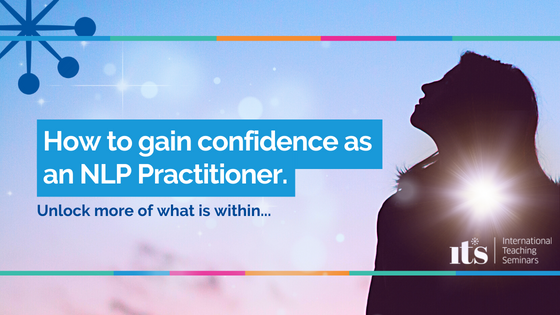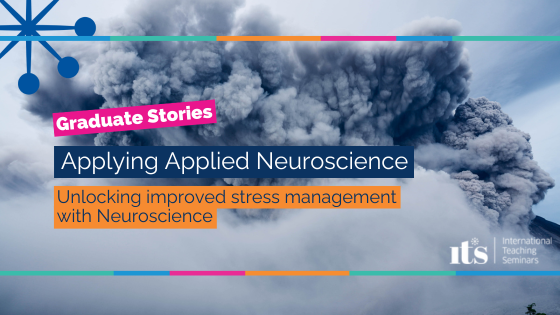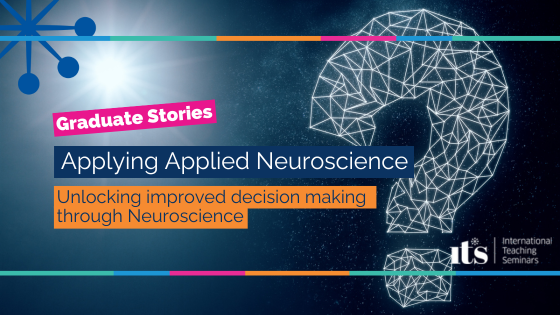When talking about confidence, it can be best described like the changing colours of a chameleon. Since confidence has many different faces and looks different on us all. This idea can also apply to the type of NLP practitioner you are.
For some, confidence is being able to walk on to a stage and perform despite the nerves that are shooting around their body. Or for others it may look like going to grab dinner or a coffee on their own.
Whatever the case may be, it is important to remember that confidence is subjective and in some cases a learnt skill. That means like with any skill you can get better at it, you just need to have some tools that work for you.
“Confidence is more than a mood; it’s a way of thinking. Ultimately, confident living is a way of being.” – Ian Mcdermott, Boost Your Confidence With NLP
‘’But how do I do that?’’
I hear you ask. You’re in luck because we have some suggestions!
In this blog, we’re going to talk about ways that you can gain more confidence as an NLP Practitioner.
We’re going to take a quick look at what an NLP Practitioner is and why confidence is important in this discipline. Then, we’ll move on to the various ways that you can gain more confidence as an NLP Practitioner.
Let’s get to it!
Why is it important to be confident?
While this blog is about gaining confidence as an NLP Practitioner, much of the information here can be applied to other areas of your life or even other job roles. We mentioned earlier, how confidence looks and feels will be different to us all. What matters is that you’re able to do it in your own way.
Before we begin to discuss why it is important, let’s take a look at the definition of confidence.
“Confidence comes from a Latin word ‘fidere’ which means “to trust“; therefore, having self-confidence is having trust in one’s self.”
If you choose to go by this definition of confidence, it’s clear that our ability to feel confident comes from ourselves. Do you trust yourself enough to believe that you will smash that interview? How about trusting yourself enough to know that you’re going to do a really great job when you’re working with your new client?
It is your lack of trust in your own capabilities that would make you feel less confident. When you think about it in this way, it is clear that a lack of confidence is just a symptom for a lack of self belief.
For a lack of self belief and its symptoms to pass, you need to sit and take stock. If you could be your most confident self, what would that look like? When are you most holding yourself back? Are there things that need to change?
What is at stake if you don’t work on your confidence?
Until you do the internal work of answering those questions, you will always be holding yourself back. The more you do this, the less you are honouring your own potential and the more you are denying yourself of future growth and experience.
Ultimately, being able to be confident is less about the ways in which you are able to move through the world and more about not letting fear or self doubt get in the way of you being the most authentic version of yourself and chasing after your desires.
Confidence is important because (in most cases) it is a direct reflection of how you feel about your own abilities and potential. Taking the time to figure out why you don’t believe in yourself as much as you would like to and then doing the work to build on that part of yourself can only benefit you in the long run.
Why is confidence important as an NLP Practitioner?
A definition of an NLP Practitioner is: ‘’Someone who is a highly resourceful and professional practitioner who uses NLP techniques to help others.’’
As an NLP Practitioner, you will find that being confident or being able to gain more confidence will benefit you greatly. There are a few reasons for this:
- You’re going to work in close proximity to people that you don’t know. It is your job to be able to build a relationship with the people you are working with in order to have the most fruitful working relationship that you can.
- Much of what you do as a Practitioner will be helping others reach their desired outcomes. This probably means that they have a little bit of work to do on the confidence front. If you have already done the work mentioned in the section above, you have first hand experience that you can use to guide them along the way.
- As we’ve established, our level of confidence stems from the beliefs that we hold about ourselves. You can’t be the practitioner that you imagine in your mind if you’re constantly putting yourself down and not believing in your own abilities.
Confidence as an NLP Practitioner allows you to do the best that you can and in turn, allow those that you’re working with to have a great experience.
How to gain confidence as an NLP Practitioner
Now that we’ve established why it is important to be confident in a way that works for you and why confidence is a key skill for NLP Practitioners, we have a feeling that you might still have some questions.
How do you go about gaining confidence as an NLP Practitioner? What actions can you do or which structures can you implement in your life to welcome confidence in with open arms?
#1 Practice:
‘’Practice makes perfect!’’is a saying that I’m sure we have all heard at some point in our lives. When you’ve been working away on something and it just isn’t going right, it seems like something that people say just to appease you in the moment. Annoyingly though, the ‘’practice makes perfect’’ brigade are correct.
The more you do something, the more confident you will become. Through practice you gain skills and experience that allow you to enjoy the moment more. As you practice, the weight on your shoulders will lift as each time you become incrementally better.
As an NLP Practitioner, you have a few ways that you can choose to practice:
- ANLP search tool – This ANLP search tool allows you to connect with NLP practice groups all over the world.
- Connect with your old training colleagues or other people in the NLP space – If trained together, it’s quite likely that you’re in similar places in terms of confidence. Use this opportunity to build each other’s confidence and get some practice in!
- Practice on your friends and family – We all could do with a little bit of coaching to help us along the way sometimes. Ask your friends and family if they would be interested and give it a go.
(Remember to ask permission before you begin any kind of work and when working with friends and family, it is important to remain unattached to the outcome to allow the other person to get the most out of the experience).
#2 Retake a training programme:
It’s never a bad idea to give yourself a chance to refresh your memory. You may see or hear things from a different perspective the second time around because we’re constantly evolving and growing. New ideas may come into focus for you, since you may no longer be the person you were when you first took the programme.
‘’No man ever steps in the same river twice, for it’s not the same river and he’s not the same man’’ – Heraclitus
Some training providers have graduate offers at a discounted price for those that are interested in retaking a training programme. If you are a recent graduate and that sounds like something you would be interested in, we have a 70% off graduate offer for anyone who would like to retake a programme here.
#3 Take the time to look at your own personal beliefs and barriers:
More often than not, it is our own negative beliefs that stop our progression. While the voice in our head may be little, it can make a pretty big impact.
How good or bad you are at something is not part of your worth or identity. Don’t let the pressure of wanting to perform at your best stop you from trying in the first place.
This is the time to take stock of your own personal beliefs and barriers and see where they’re impacting you. Use the NLP knowledge that you have and use it on yourself to gain some more confidence. Try the ‘Circle of Excellence’ or the Logical Levels to get started.
#4 Invest some more time into yourself:
The more knowledge that you have, the more confident you will be. Invest in yourself and take another training course to really hone your skills and become an expert.
Then, when the time comes that you might feel you’re lacking in confidence again (it happens to us all!) All you have to do is remind yourself of what you know.
If you’re interested in taking your studies further, the ITS Master Practitioner programme taught by three international master trainers who have influenced and pioneered the development of NLP, may be just the thing you need.
#5 Remember why you wanted to be an NLP practitioner:
Getting wrapped up in the day to day means that sometimes we forget why we wanted to do something in the first place. Sit with yourself and remember why you began your journey as an NLP Practitioner.
Refocus and allow that to take centre stage. Place your energy there to banish any self doubt. Less worrying about what you think you can’t do and spend more time setting good intentions to help others. After all, that is why you choose to be a Practitioner of NLP, isn’t it?
How’s that confidence doing?
Hopefully, now that you’ve reached the end of this blog, you’re feeling a little better about finding your feet and gaining your confidence as an NLP Practitioner.
You now have clarity on why it is important to be confident. And, you have five different avenues that you can take to kick start your confidence.
Remember, confidence is subjective and you get to decide what that means for you. You’re the only one who knows where the seed of self doubt is planted.
With this blog, we’ve given you the tools. Will you continue to water the seed of self doubt or blooming buds of confidence?
As ever, if you need a hand with anything NLP, meet us over at our NLP Learning Zone and have a look at our programmes, workshops and books that can help you on your way.





Leave A Comment